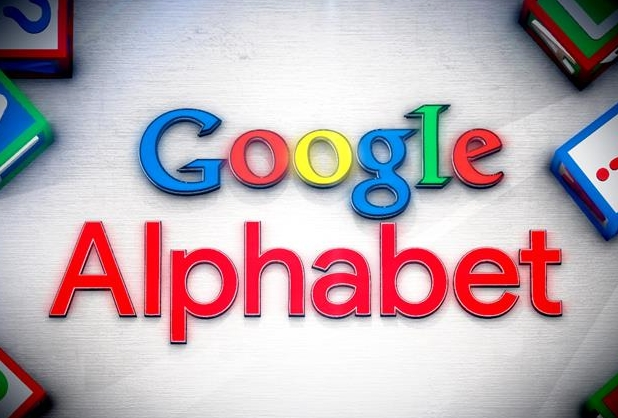The multinational company Alphabet Inc. is renowned for its inventive technical innovations and its wide range of subsidiaries. Alphabet Inc., which was established on October 2, 2015, as part of a corporate reorganization of Google, is the main holding company of Google and a number of its previous subsidiaries. The corporation was able to deploy resources more effectively and better organize its diverse interests thanks to this strategic move. Alphabet Inc.’s main goal is to provide a more seamless management structure so its many businesses can flourish and innovate. The company is based in Mountain View, California.
Organizational Structure
The restructuring into Alphabet Inc. was intended to promote creativity and adaptability by giving businesses within the company more autonomy. The biggest subsidiary, Google, is in charge of key online services, including YouTube, search, and advertising. Additional companies concentrate on different industries, such as venture capital investments (GV and CapitalG), self-driving cars (Waymo), and life sciences (Verily). Within the larger Alphabet corporation, this decentralized strategy promotes specialization and an entrepreneurial spirit by granting each subsidiary autonomy.
Google: The Principal Affiliate
Alphabet Inc.’s most prominent and well-known subsidiary is still Google. It is the dominant player, with over 90% of the global search engine market. In addition to search, Google offers YouTube, the largest video-sharing website worldwide, and Android, the most popular mobile operating system. Most of Alphabet’s revenue comes from its advertising network, which includes AdWords and AdSense, which Google owns. The subsidiary’s emphasis on machine learning and artificial intelligence, as seen by developments in Google Assistant and Cloud services, keeps pushing the limits of what technology is capable of.
Waymo: A Leader in Driverless Cars
Once a Google project, Waymo has become a frontrunner in autonomous car development. Waymo was founded in 2009 to utilize self-driving technology to improve accessibility and safety in transportation. The business has created a reliable autonomous driving system that has undergone extensive testing in various settings. Millions of kilometers have been driven by Waymo’s autonomous vehicles on public roads, and to demonstrate the usefulness of its technology, the company has introduced a commercial ride-hailing service in some places.
Indeed: Promoting Life Sciences
Verily Life Sciences is dedicated to preventing illness and promoting health through the integration of life sciences and technology. Its initiatives include everything from creating smart contact lenses to monitor blood sugar levels to carrying out in-depth research to better understand human health. Verily’s goal is to enhance health outcomes through the application of technological innovation and data-driven techniques. The company works with various research and healthcare organizations, utilizing Alphabet’s technological know-how to address some of the most critical health issues.
CapitalG and GV: Making Innovation Investments
Innovative startups are identified and nurtured by Alphabet’s venture capital arms, CapitalG and GV (previously Google Ventures). In addition to providing funding, GV offers access to Google’s vast network and resources by investing in various fields, such as robotics, AI, and life sciences. Contrarily, CapitalG specializes in growth-stage businesses and provides them with support and strategic direction to enable them to flourish. Through these investment divisions, Alphabet can maintain its leadership position in technical innovation and support the growth of the upcoming wave of ground-breaking businesses.
Nest: Intelligent Domestic Automation
Nest is well-known for its smart home gadgets. Google purchased Nest in 2014, and it is currently part of Google’s hardware group. These consist of smoke detectors, security cameras, and thermostats intended to make homes more automated and linked. Nest’s integration with Google Assistant makes seamless voice control of smart devices possible, improving user experience. Nest’s product line’s emphasis on energy efficiency and sustainability reflects Alphabet’s larger commitment to environmental responsibility.
DeepMind: Progressing the Study of AI
A leading research organization in artificial intelligence, DeepMind, was purchased by Google in 2015. DeepMind, well-known for its revolutionary work in deep learning and neural networks, uses cutting-edge AI to address challenging challenges. The business won praise from all around the world for creating AlphaGo, the first artificial intelligence computer to beat a skilled human go player. DeepMind has developed algorithms to aid in diagnosing medical disorders, and its research has applications in several industries, including healthcare. The work being done at DeepMind demonstrates Alphabet’s dedication to using AI to advance society. Read More
Obstacles and Remarks
Alphabet Inc. is subject to several critiques and difficulties despite its achievements. Privacy concerns are serious, especially in light of how Google handles user data. Global regulatory monitoring has increased, and several governments are looking at Alphabet’s business practices and market dominance. Due to antitrust infractions and data privacy violations, the company has been hit with significant fines and court fights. Furthermore, the public has reacted negatively to Alphabet’s forays into contentious fields like facial recognition technology, which has provoked ethical discussions. Alphabet continues to need help to balance innovation, moral responsibility, and regulatory compliance.
Prospects for the Future
With that in mind, Alphabet Inc. is well-positioned to maintain its current trajectory of innovation and growth. The corporation is at the vanguard of upcoming technical developments thanks to its investments in cutting-edge fields, including biotechnology and quantum computing. Alphabet’s objective to run totally on renewable energy is a testament to its commitment to sustainability. The conglomerate’s focus on responsible innovation and societal impact will be crucial as it navigates regulatory frameworks and addresses privacy concerns. Alphabet’s long-term performance and impact in the global digital industry will depend on its capacity to adjust to changing technology and commercial conditions.
